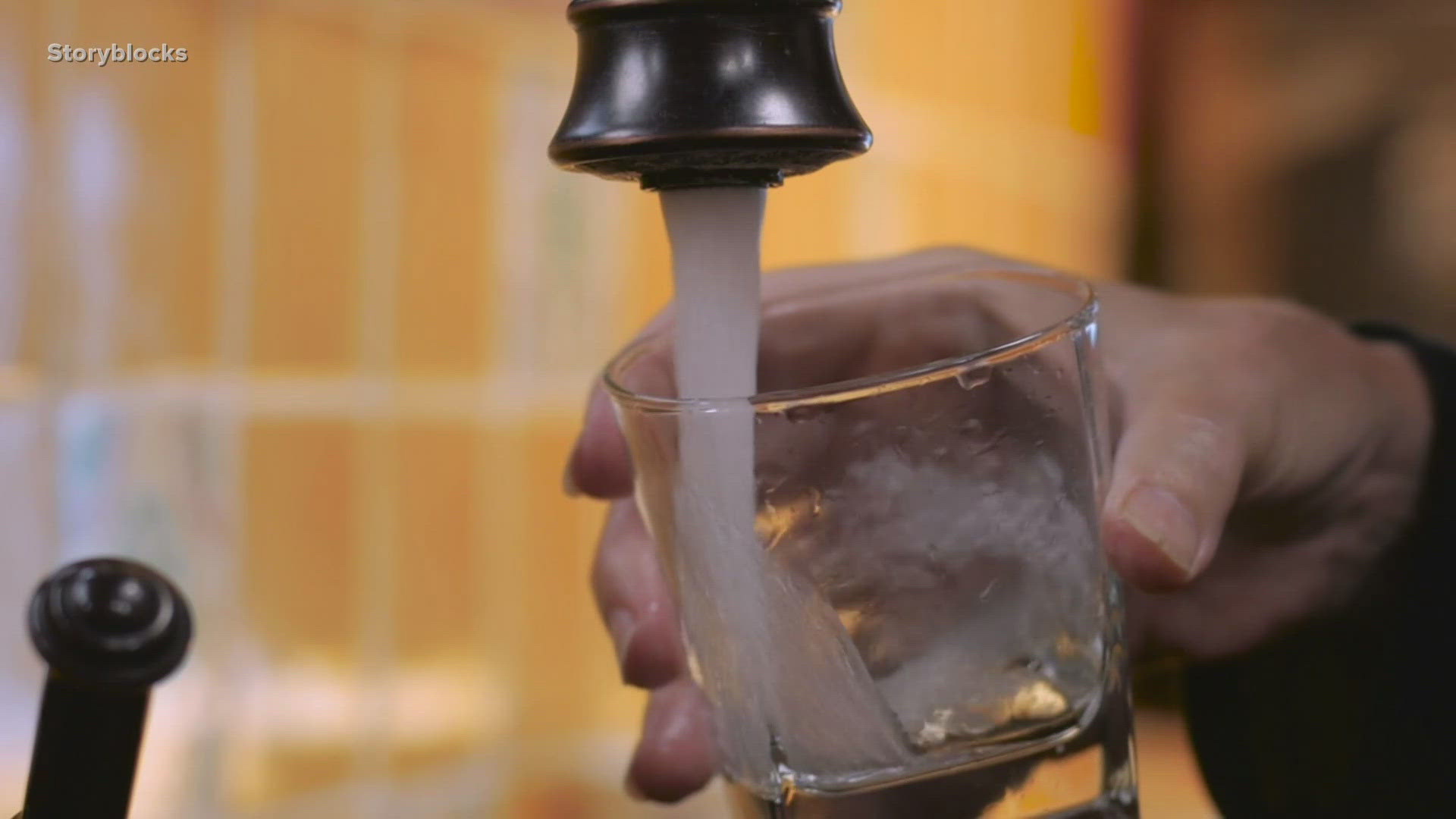TEMPLE, Texas — More homeowners are raising questions about their tap water after a Temple, Texas woman tested her own and allegedly found pesticides.
Abby Labady lives in Temple and hopes to start a family one day. That's why she bought a water test kit.
Labady's results show pesticides could be found in her tap water. Now she's worried about the potential impacts on pregnancy.
THE QUESTION
Can pesticides be found in Temple's tap water?
OUR SOURCES
Megan Price, Public Relations Coordinator for the City of Temple and Richard Richter, Media Relations Specialist for the Texas Commission on Environmental Quality (TCEQ).
THE ANSWER
Yes, some pesticides can be found in Temple's tap water, but the levels are acceptable, according to the City.
WHAT WE FOUND
The two most common pesticides found in drinking water are Atrazine and Simazine. These samples are collected and tested on a quarterly basis by a third-party lab established by the TCEQ, the City said. Temple’s test results are below the Maximum Contaminant levels as set forth by the TCEQ and Environmental Protection Agency (EPA).
The City of Temple monitors the water quality along each step of the treatment process on a 24/7 basis using online instrumentation that samples the water quality at all times. In addition, samples are also collected and tested by qualified treatment plant operators every four hours for verification, accuracy and process control purposes. All water being treated on a daily basis complies with TCEQ (State) and EPA (Federal) drinking water standards. In terms of the specific pesticides and included other toxins, these are sampled on a quarterly basis.
The City says trace amounts of the two pesticides in question as per the customer's home testing kit (Atrazine and Simazine) could potentially be detected, but the City’s most recent test results collected and tested by the third-party lab hired by the TCEQ show all results are well below the maximum contaminant levels.
The City added their goal is deliver safe drinking water to all residents, and there are essential steps that are taken at the Water Treatment Plant to ensure this happens. The City of Temple is an accredited Superior Water System. The city is also part of the TCEQ’s Texas Optimization Program, and currently, they are one of only 18 entities that participate in the program. This program sets even higher drinking water standards than are required by the State of Texas and EPA.
They would also like residents to know that all regulatory chemical analysis can be seen on Consumer Confidence Reports as well as the Texas Drinking Water Watch (TDWW) which can be found on the TCEQ’s website. The TDWW is a free and open to the public database where all sample results for Temple's water system can be found.
The TCEQ says analytical methods are procedures used to measure the amount of a particular contaminant in water samples. Analytical methods generally describe how to:
- Collect, preserve and store the sample
- Gather, separate, identify and measure contaminants in the sample
- Meet quality control criteria
- Report the results of the analysis
By rule (Title 30, Texas Administrative Code (TAC) Chapter 25), TCEQ can only accept data for compliance matters if the data and analyses are prepared by an environmental testing laboratory accredited by TCEQ to the National Environmental Laboratory Accreditation Program (NELAP) standard using methods approved in the TCEQ’s Field of Accreditation. Information about all public water systems, including contaminant compliance data, is available on-line at the Texas Drinking Water Watch: http://dww2.tceq.texas.gov/DWW/, a searchable database available to the public to find information on the quality of locally produced drinking water.
During extreme weather events, several conditions exist that can impact a water system’s ability to treat and/or distribute drinking water, including but not limited to:
- Loss of power
- Loss of pressure
- Damaged equipment
- Damaged road conditions
The most common concern after flooding or power outage events is bacteriological contamination. Systems may need to issue boil water notices as either a precaution or notification to protect their consumers when an unexpected condition causes the potential for biological contamination of drinking water.
The TCEQ pesticides have the potential to contaminate drinking water supplies. They are applied to farmlands, gardens and lawns and can make their way into ground water or surface water systems that feed drinking water supplies. Whether these contaminants pose a health risk depends on how toxic the pesticides are, how much is in the water and how much exposure occurs daily. Additional information regarding drinking water and pesticides can be found here: https://www.epa.gov/safepestcontrol/drinking-water-and-pesticides.
Customers should review the data associated with their public water system through Texas Drinking Water Watch (http://dww2.tceq.texas.gov/DWW/) and/or review their system’s Consumer Confidence Report (sometimes called an Annual Water Quality Report). Additionally, customers should read any correspondence from their water provider including public notifications. For additional concerns, customers should seek advice about their drinking water from their physician or health care providers.
More from 6 News:

